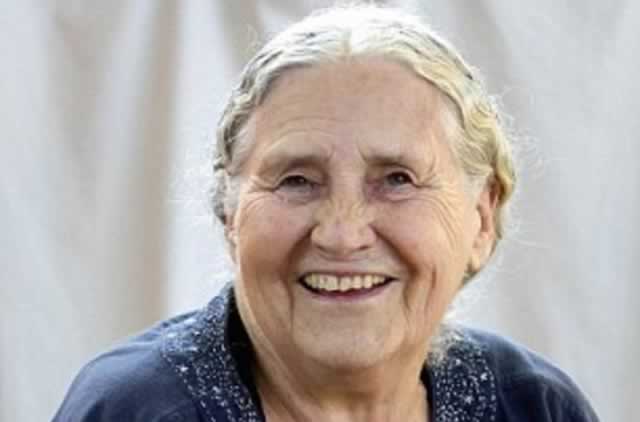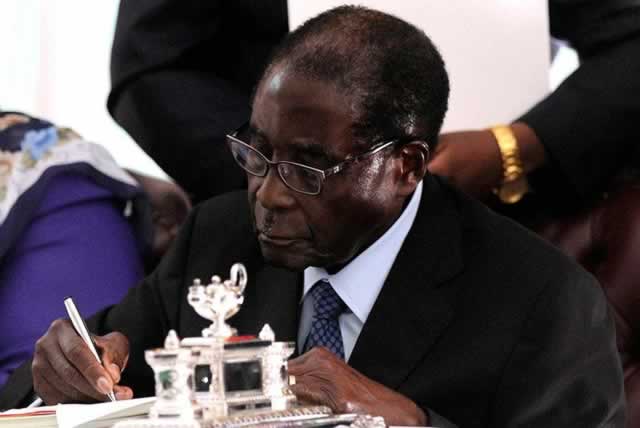When laughter becomes the panacea to suffering

Elliot Ziwira @The Bookstore
The whites cared more for the land and its animals than they did for the Africans . . .
THERE is something unique about the African people in that instead of being burdened by sorrow and disaster underlining their existence, in a world where the presumed superiority of race is evoked at every corner of its precincts, they let out a hearty laughter and let things be.
They take to social media platforms at their disposal through rapturous laughter.
Africans have learnt over eons that laughter is the best weapon to deal with adversity and replenish the soul. Unfortunately or fortunately, it is this nature of the African that is misconstrued for docility and naiveté; it is this that is used against himand yet it is this that is his strength, his abode, his resolve.
The reading of Doris Lessing’s “African Laughter: Four Visits to Zimbabwe” (1992) reveals more about what the African thinks about himself and his environs than what those who purport to understand him do. The book, which effectively exploits the autobiographic mode, chronicles the writer’s own experiences through a combination of stories, poems, anecdotes, obituaries, newspaper cuttings, songs, historical allusions and sojourns.
Having been banned from Southern Rhodesia for 25 years because of her criticism of the then white government, Doris Lessing visits her homeland in 1982, two years after independence. She made three other subsequent visits in 1988, 1989 and 1992.
Her first visit reveals the euphoria reminiscent of independence, as the majority black populace celebrate their freedom from colonial oppression and subjugation; the problems associated with teething as the young black government learns the ropes of governance; the depression, despondency and frustration of the defeated whites who feel hard pressed to not only accept the outcome of the protracted war, but to submit to their former “bossboys” now in charge; and the hope of a newly born nation whose desire to experience the Utopian kingdom promised them is thwarted by a new breed of black fatcats who hijack the revolution from the majority and run away with it.
A brief history of colonialism and how it displaced the original owners of the land and forced them to eke out a non-existent living on the periphery of rich arable land now occupied by the alien gangs from the West, justifies the ensuing wars, the first one of which the Africans lost and the second one which they won.
Lessing gives the white man’s perspective of the land and the war which he calls the Bush War. The whites were fighting to preserve the legacy started by Cecil John Rhodes and his Pioneer Column, who were on “an adventure for the sake of the Empire, for Cecil Rhodes, whom they knew to be a great man, for the Queen . . .” They believed that “Salisbury, a white town, British in feel, flavour and habit”, was theirs for keeps because “the conquered were inferior, that white tutelage was to their advantage, that they were bound to be the grateful recipients of superior civilisation”.
The whites cared more for the land and its animals than they did for the Africans. They would rather protect animals and allow them to roam freely in vast tracts of arable land than give the same land to the blacks, who were packed in reserves in what they (whites) derogatorily called “kraals”.
The Africans were fighting for what was rightfullytheirs; for equal opportunities; against repressive laws that relegated them to arid lands, robbed them of their humanity, castrated their sense of worth and stunted their dreams. Theirs was a struggle for liberation and not a mere Bush War.
The picture that the writer conjures evocatively questions the essence of freedom in a situation where the predatory nature of Man bares itself in the reversal of the roles of the hunter and the hunted. The defeated whites whose erstwhile zealot, Ian Smith, conceitedly believed that there would never be black majority rule “in a thousand years”, fail to swallow the reality that stares at them, as a result they play the blame game on the ruling Zanu-PF Government. Some decide to “take the Gap” in apartheid South Africa because they cannot endure a “black government”.
Lessing highlights the bitterness at the core of the white progenies, as they are made to play second fiddle to the true owners of the land that they so much adore, through the veranda gatherings which have become their pastime, as they recite The Monologue.
Her brother Harry, who talks ceaselessly “about the innate inferiority of blacks”, and yodels about how the country used to be beautiful when it was under white administration, finds it unreasonable to “give free lifts to people who had just unfairly beaten his side in the War”. The olive branch of reconciliation that is extended to them by the black government is frowned at, as doom is prophesied.
The white dream remains etched in the past, where events seemed to favour their lot, hence, progress remains clogged in the world of yore, as spanners are put in the wheels of developmental projects.
The majority, as a culmination of sabotage, individualism and deceit find themselves in no better a situation, as poverty continues to gnaw at them, yet they remain resolute and find respite in laughter. Theirs, as described by the writer, is: “The marvellous African laughter born somewhere in the gut, seizing the whole body with good-humoured philosophy. It is the laughter of poor people.” There are several other incidents where laughter is used as a form of escapism from the restrictive and oppressive inclination of lack.
On the flipside the Africans who are referred to as “our Affs” by the whites are determined to haul themselves forward even in the face of adversity. They are aware that only knowledge has the capacity to turn the wheels of fortune, so the acquisition of skills is given priority. More schools and vocational centres are constructed and the Holy Grail is put in focus.
Labour laws which favour those that toil are enacted, and minimum wages introduced; yet the issue of the land remains thorny as it is still in the hands of a few; and the prophets of doom are quick to point out that the schools lack books and trained teachers; that the O-Level pass rate for 1988 was a mere 5 percent; but is that not an achievement considering that the bottlenecks in education during Smith’s regime saw to it that very few blacks acquired a secondary qualification?
In the decade that the book spans, a plethora of socio-economic and socio-political issues are visited. The AIDS pandemicand its stigma, is also highlighted although the extent of its prevalence and effect is somehow exaggerated as “half” the police and the army is said to be infected. The scanty knowledge on the disease, leads to alienation, stigmatisation and accusations of witchcraft.
On the political landscape Zimbabwe plays a pivotal role in the stabilisation of the region, as Mozambique is ruined by Renamo, sponsored by apartheid South Africa.
The rise of Edgar Tekere and his Zimbabwe Unity Movement (ZUM) fail to make any meaningful impact, as was hoped by President Robert Mugabe’s detractors peddling lies that he is unpopular: “The POVOS are angry… If the Government held an election now there would not be one vote for Mugabe. All over the country they are saying, Why did we fight that war? What for? We might as well have kept Smith…Yes, there is going to be a storm all right…”
Wishful thinking that turned out to be, for the revolutionary icon went on to resoundingly win against Tekere, and other puppet outfits that followed, and the African laughter echoed exuberantly in the rich mountains of the motherland.







Comments